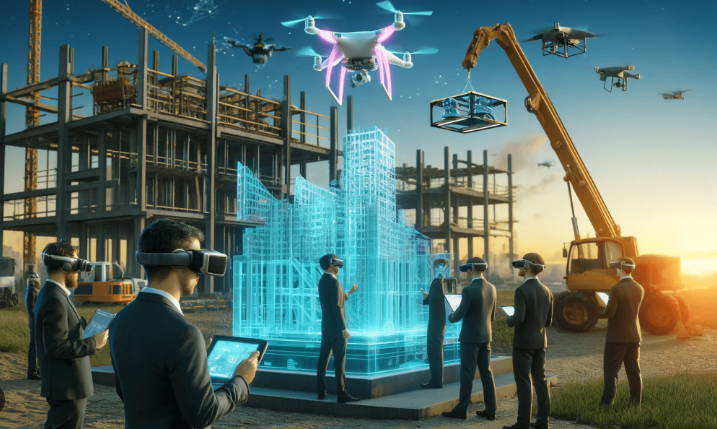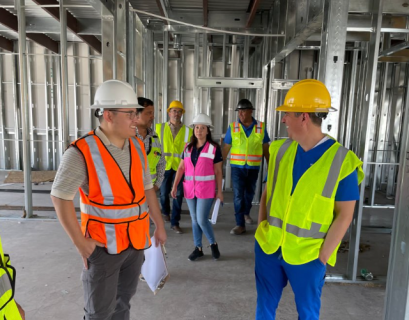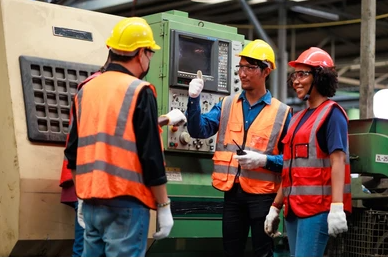The construction industry is evolving rapidly, thanks to new technologies like Artificial Intelligence (AI). AI has transformed the way professionals estimate construction costs, saving time and improving accuracy. With this shift, the demand for AI specialists in construction estimation has skyrocketed.
These experts bridge the gap between technology and practical construction needs, bringing efficiency to complex projects.
Why AI is a Game-Changer in Construction
Construction estimation involves predicting project costs, materials, and timelines. In the past, this was done manually, which often led to errors and delays. Now, AI automates these tasks, offering fast and precise results. Advanced tools analyze data, predict risks, and even suggest cost-effective solutions.
For example, AI-powered tools can process huge amounts of data to create reliable construction cost estimates. This accuracy helps companies avoid budget overruns and unexpected expenses.
Rising Need for AI Specialists
As AI tools become standard in the industry, professionals who understand how to implement and manage them are in high demand. AI specialists in construction estimation use their skills to develop and operate intelligent software. They help businesses:
- Automate tedious tasks.
- Minimize errors.
- Improve project timelines.
These specialists are also essential for training teams to use AI tools effectively. They ensure the technology aligns with a company’s specific needs, such as residential or commercial construction estimation.
Key Benefits of AI in Estimation
AI is not just a trend; it is reshaping how construction companies plan and execute projects. Below are some of the major benefits:
- Faster Estimation Processes
AI eliminates the time-consuming nature of manual calculations. For example, drywall estimating can now be done in minutes with AI-powered software. This speeds up project planning and decision-making.
- Improved Accuracy
Human errors in manual calculations can lead to significant losses. AI reduces these risks by analyzing data with precision. For instance, lumber estimating becomes more reliable when AI tools measure material requirements accurately.
- Cost Savings
AI helps construction firms stay within budget by predicting costs more effectively. It identifies areas where resources can be saved without compromising quality.
- Risk Management
AI can analyze historical data and predict risks before they occur. This proactive approach helps companies avoid delays and financial setbacks.
Applications of AI in Construction Estimation
AI has found its place in various aspects of construction estimation. Below are a few examples:
- Commercial Construction Estimation
AI software simplifies cost estimation for large-scale commercial projects. It evaluates multiple factors like labor, materials, and equipment costs simultaneously.
- Residential Construction Estimation
For residential projects, AI tools create detailed breakdowns of costs, ensuring homeowners get accurate estimates. This builds trust between contractors and clients.
- Drywall Estimating
AI tools specialize in measuring areas for drywall installation, providing accurate material and labor costs. This reduces waste and speeds up project timelines.
- Lumber Estimating
Lumber takeoffs are time-intensive. AI tools automate this process, calculating precise quantities and costs for framing, flooring, and more.
Skills Required for AI Specialists in Construction
To meet the growing demand, professionals need specific skills:
- AI Programming: Knowledge of algorithms and coding is essential.
- Data Analysis: Understanding construction data helps specialists design better tools.
- Construction Knowledge: A background in construction ensures the tools meet industry needs.
- Software Management: Specialists must train teams and troubleshoot issues.
Challenges in Adopting AI
Despite its benefits, AI adoption in construction is not without challenges. High implementation costs can be a barrier for small firms. Additionally, the industry faces a shortage of skilled professionals who can manage AI systems effectively.
Another issue is resistance to change. Many traditional firms hesitate to adopt new technologies, fearing disruption to their workflows. However, companies that embrace AI stand to gain a competitive edge.
How to Build a Career as an AI Specialist in Construction
The growing demand for AI experts presents exciting opportunities for tech-savvy professionals. Here’s how to build a career in this field:
- Learn Programming Languages: Python, R, and Java are commonly used in AI development.
- Understand Construction Basics: Familiarize yourself with construction processes and materials.
- Gain Certifications: Enroll in AI-related courses to enhance your resume.
- Work with AI Tools: Practice using construction-specific software like PlanSwift or Bluebeam.
Future Trends
The future of AI in construction looks promising. Companies are investing heavily in smart technologies to improve efficiency. From drones to AI-based project management software, the possibilities are endless.
As AI tools become more sophisticated, their role in construction will expand further. For example, they might soon integrate virtual reality to simulate projects before construction begins.
Final Thoughts
AI is revolutionizing the construction estimation process, and the need for skilled specialists is greater than ever. Professionals who embrace this technology can enjoy rewarding careers while helping companies achieve better results.
By leveraging AI for tasks like construction cost estimating, drywall estimating, and lumber estimating, businesses can save time and resources. As the industry continues to evolve, investing in AI and its specialists is no longer optional—it’s essential for success.










